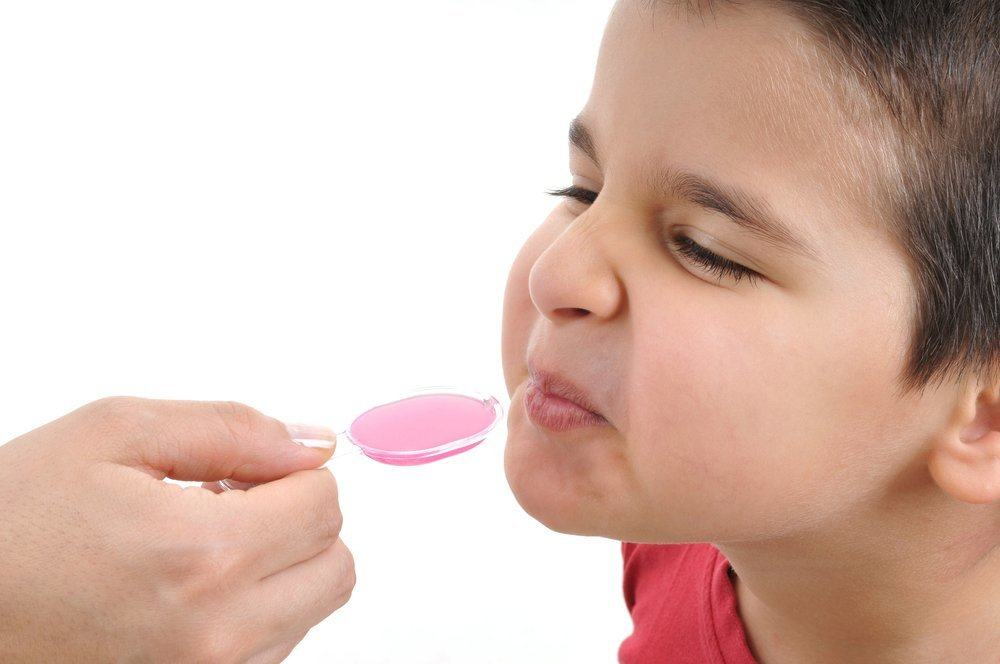Contents:
- Medical Video: 9 Strategies to Stop Overeating
- What is Prader-Willi syndrome?
- What are the causes of this often hungry disorder?
- What are the signs and symptoms of Prader-Willi syndrome?
- Can Prader-Willi syndrome be cured?
Medical Video: 9 Strategies to Stop Overeating
After eating, you might expect to feel full. But not so if you are diagnosed with a genetic disorder known as Prader-Willi syndrome. This disorder whose medical name is quite difficult is called causing a person to get hungry even though he just ate a lot. Here are all the information you need to know about Prader-Willi syndrome.
What is Prader-Willi syndrome?
Prader-Willi syndrome (PWS) is a genetic disorder that affects appetite, growth, metabolism, as well as a person's cognitive and behavioral functions. PWS is characterized by low muscle tone (weak muscle contraction), short stature due to not getting enough growth hormone, cognitive disability, behavior problems, slow metabolism which can cause him to be hungry but never feel full.
Complaints are often hunger that is not controlled - either by limiting access to food, therapy, maintaining weight, and drugs - can make it overeating and lead to obesity that can be deadly.
It is estimated that one in 12,000 to 15,000 people in the world have PWS. PWS can occur in any family, both men and women, and in all races throughout the world. But even though it is considered a rare disorder, PWS is one of the most common types of eating disorders and is the most common genetic cause of obesity to date.
What are the causes of this often hungry disorder?
The Prader-Willi syndrome is unknown. But this eating disorder is a genetic mutation disorder that occurs at or near the time of conception for unknown reasons. Chromosomes in the normal human body number 46, but the Prader – Willi Syndrome is always caused by a mutation on the 15th chromosome that is derived from the father.
This mutation causes about seven genes on the chromosome to disappear or not be perfectly expressed. This father-derived chromosome has a role in regulating appetite and the sensation of hunger and satiety. Therefore, gene deficiency or disability due to mutations can cause a person to be often hungry without ever feeling full.
PWS can also be obtained after birth if the hypothalamus part of the brain becomes damaged due to injury or surgery.
What are the signs and symptoms of Prader-Willi syndrome?
Symptoms of Prader Willi Syndrome can vary with each individual and can change with age.
Signs and symptoms of Prader-Willi syndrome in newborns, including:
- Has special facial characteristics - eyes that are too small in the shape of an almond, forehead that is too small and the upper lip looks thin.
- Weak sucking reflexes - caused by imperfect muscle mass which makes it difficult for the breastfeeding process.
- Low response rate - markedly difficult to wake up from sleep and the sound of crying is slow.
- Hypotonia - characterized by a low period of muscle or baby's body is very soft when touched.
- Incomplete genital development - easier to recognize in men such as the penis and scrotum that are too small or the testes that do not descend from the abdominal cavity, whereas in women the genital parts such as the clitoris and labia appear too small.
Signs and symptoms of Prader-Willi syndrome in children up to adulthood, including:
Other symptoms can only be detected when the pengap enters the age of children and settles throughout their lives. This causes Prader Willi syndrome to be handled appropriately.
- Eating a lot and gaining weight quickly - can appear since the age of two years and cause a child to feel hungry continuously. Abnormal eating patterns such as eating raw food until objects that should not be eaten can occur. Someone with Syndrome Prader Willi is very at risk of obesity and its complications such as diabetes mellitus, cardiovascular disease, sleep apnea and liver disease.
- Hypogonadism - characterized by too little sex hormone production so that it does not experience normal sexual and physical organ development, late puberty to infertility.
- Physical development and growth are not perfect - characterized by shorter height in adulthood, too thin muscles and too much body fat.
- Cognitive disorders - such as difficulty thinking and solving problems. Even though without significant cognitive impairment learning disorders can still be experienced by the indexer.
- Motor disorders - the ability to walk, stand, and sit Syndrome child Prader Willi slower than his age child.
- Speech disorders - such as difficulty saying words and articulation can still occur until they are adults.
- Behavioral disorders - such as showing stubbornness and irritability and difficulty in controlling emotions when not getting the food he wants. They also tend to have compulsive repetitive behavior patterns.
- Other physical characters - having arms and legs that are too small, a curved spine (scoliosis), a disturbance in the waist, a disturbance in the salivary gland, visual disturbances, high tolerance to pain, skin, hair and eyes tend to be paler
Can Prader-Willi syndrome be cured?
Prader – Willi syndrome cannot be prevented and cannot be cured completely. But the symptoms can be controlled if you get a diagnosis as early as possible. Prader Willi syndrome can be identified and distinguished from other genetic disorders such as Down syndrome based on the history of symptoms experienced by the person.
Early detection can be done when the newborn shows symptoms of hypotonia which is unknown and if the baby has weak reflexes when breastfeeding. Inauguration of the diagnosis requires DNA and methylation tests fluorescent in situ hybridization (FISH) to detect genetic disorders.
If your frequent hunger causes are correct because of Prader-Willi syndrome after being tested in the hospital lab, your doctor will advise you to take hormone therapy to maximize growth hormone and sexual release for genital development. In addition, you also need a strict diet to control appetite and calorie intake. Social and occupational therapy and mental health therapy are also needed to prepare you to socialize in the environment more comfortably.












